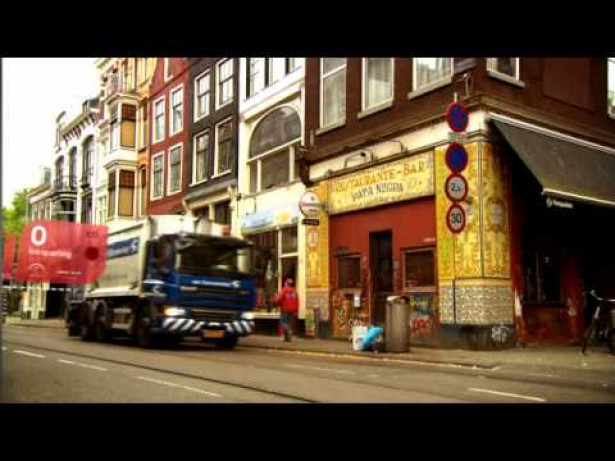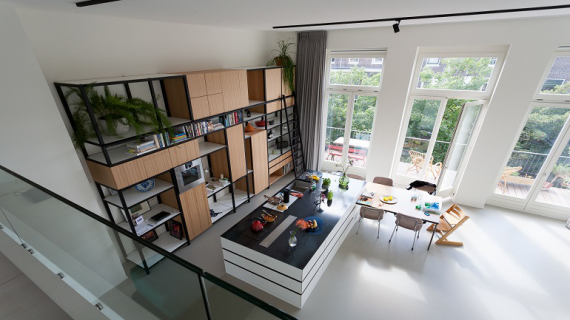On our way to become a natural gas free city, many residential buildings in Amsterdam need to be retrofitted. In City-zen the most ambitious ones were granted subsidy.
City-zen was an international consortium, a program stimulating learning-by-doing in Grenoble and Amsterdam between March 2014 and November 2019. The results can be found in a booklet or in detailed reports. http://www.cityzen-smartcity.eu/home/reporting/deliverables/
Read our interviews with some of the individual home-owners:
Learn more about some of the larger projects:
- How to make post war buildingssustainable?
- VIDEO: Wath this video (in Dutch) about how social housing company Eigen Haard renovated 138 apartments in the post war Airey Buildings in Amsterdam Nieuw-West with the support of City-zen funding:

Have a look at the MURMUR2 Campaign in City-zen city Grenoble and the work of the social landlords over there.
What is the goal of the project?
Transforming the building stock of Amsterdam into NZEB: nearly zero energy buildings, is quite a task. This subsidy scheme targeted projects ranging from 1 to 157 dwellings.
What is the result of the project?
Home owners, housing corporations and property investors of ambitious energy retrofit projects in Amsterdam could apply for European City-zen funding. The available support of €2,6 million euro was awarded to the most ambitious renovation projects, with the largest reduction in CO2 emissions. Heat pumps, smart ventilation systems, air tight insulation and PV panels, solar collectors, and wood burners are a selection of the wide range of measures which are being applied by the home owners to meet the required, ambitious standard for this funding. The support of the European Commission helps to reduce the combined CO2 emission of these 600+ homes with approximately 2.800 tonnes per year.
Who initiated the project and which organizations are involved?
Housing corporations Eigen Haard and Stadgenoot, city district New West and many individual home owners renovated their homes. Amsterdam Smart City was responsible for recruiting and selecting the projects. DNV GL assessed the projects energy performance and will monitor them for at least a year. TU Delft researches the sociatal aspects of innovation among the residents. This retrofit campaign is part of City-zen.
What is the next step?
Amsterdam Smart City received enough applications for the full amount of €2.600.000.
The home renovations must be completed before the end of 2018. The monitoring will be completed by the end of 2019.
What can other cities learn from your project?
We learned that a subsidy scheme has to be straight forward and easy. We also learned that many owner-residents are hesitant to hire an energy advisor. We see that many of the applicant (organisations) are really front runners, their motivation for these high performing energy renovation is much more than strictly financial. We see that with an economy on the rise plus a clearer outlook towards a natural gas free city, more people start to move. This also results in a scarcity of (insulation) materials and installers.






